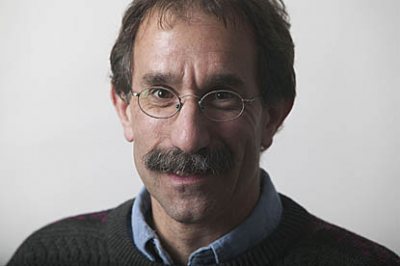
Wenzel awarded $100,000 grant for chemistry curriculum development
By Catherine Green ’10
Thomas Wenzel, Charles A. Dana Professor of Chemistry at Bates, has received a grant worth nearly $100,000 to support a curriculum development project in analytical chemistry.
The National Science Foundation awarded Wenzel a $99,278 “Course, Curriculum and Laboratory Improvement” grant for a project titled Collaborative Research: Development of Contextual E-Learning Modules for Analytical Chemistry.
Working with professor Cynthia Larive of the University of California, Riverside, Wenzel is developing an entire online undergraduate curriculum in analytical chemistry that will be disseminated via the Analytical Sciences Digital Library.
The Analytical Sciences Digital Library is a NSF-funded digital resource that collects and publishes discovery materials pertinent to curricular innovations and technical resources in the analytical sciences. Wenzel has been involved with the ASDL since its inception and is a member of its advisory board. Larive is a managing director of the library.
The key to the curriculum “is the use of collaborative learning in place of a lecture mode of instruction,” Wenzel says, “and problem-based or project-based labs in place of the traditional ‘cookbook labs’ that tend to characterize chemistry courses.”
The collaborative learning model means that topics will be developed through small-group activities in class, with instructors serving as facilitators to help students work through the problems.
The lab component will eschew a traditional approach that favors prescribed, step-by-step confirmation of predetermined outcomes. Instead, the lab work will comprise real chemical analysis problems for which students will have to design and implement their own measurement techniques and methods.
Wenzel, a 1999 recipient of the American Chemical Society’s National Analytical Chemistry Education Award, already employs collaborative learning and project-based labs in his courses.
The NSF grant is a so-called Phase 1 award. If the foundation deems the development and progress of this project successful, Wenzel, Larive and their collaborators may request a Phase 2 award for an additional $500,000 in two years.
That funding will enable them to continue developing topical units included within an analytical chemistry curriculum. “What I will do is expand my materials to fulfill the breadth of topics taught across the spectrum of analytical chemistry courses,” Wenzel explains. He’ll also write instructor manuals for the material.
“The expansion of topics and the manuals will facilitate the adoption of these methods and materials by other instructors throughout the country and the world.”
![]()



